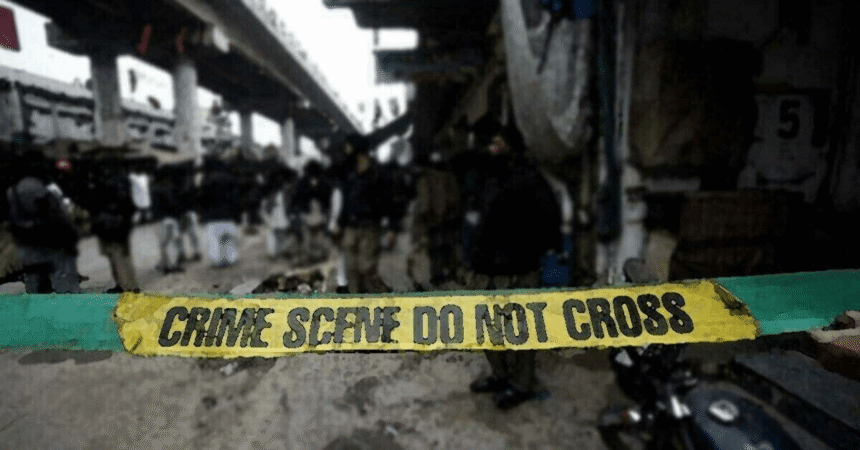In a harrowing incident that shook the community of Quetta, a powerful explosion occurred near a police mobile unit on the Eastern Bypass, injuring nine individuals, including a police officer. This tragic event, marked by its violence and chaos, has raised concerns about security and safety in the region, underscoring the ongoing challenges faced by law enforcement and local authorities in combating terrorism and maintaining public safety.
The Incident
The explosion took place early in the morning, around rush hour, when the area was bustling with activity. Reports indicate that the explosive device was ingeniously concealed within a motorcycle parked strategically along the roadside. This method of attack is characteristic of tactics employed by various militant groups operating in the region, aimed at targeting security personnel and instilling fear among the civilian population.
Witnesses described the scene as chaotic following the blast. Eyewitness accounts reveal that the sound of the explosion was deafening, sending shockwaves through the surrounding area and causing panic among pedestrians and motorists. People rushed to help those injured, while some fled the scene in terror. The damage inflicted was not only physical; the psychological impact on the community is profound, as residents grapple with the reality of such violent incidents occurring in their neighborhood.
Immediate Response
Emergency response teams were dispatched promptly to the scene, showcasing the preparedness of local authorities in the wake of such emergencies. Paramedics and rescue workers worked tirelessly to transport the injured to nearby hospitals. Reports indicate that among the nine injured, one person is in critical condition, requiring immediate medical attention.
The local hospitals quickly mobilized resources to treat the victims, ensuring that they received urgent care. The severity of injuries varied, with some individuals suffering from blast-related trauma while others had shrapnel wounds. The medical staff’s swift response is commendable, reflecting their readiness to handle mass casualty incidents.
Investigation and Security Measures
In the aftermath of the explosion, police and security agencies cordoned off the area to conduct a thorough investigation. Forensic teams were deployed to gather evidence, including remnants of the explosive device and any potential leads that could assist in identifying the perpetrators. Such investigations are crucial not only for bringing justice but also for preventing future attacks.
Law enforcement officials have expressed their commitment to uncovering the details surrounding the incident. They are working diligently to trace any groups that might have been involved. Although no organization has claimed responsibility for the attack yet, authorities remain vigilant, as such incidents are often linked to broader networks of terrorism that operate within the region.
Context of Violence in Quetta
Quetta, the capital of Balochistan province, has a complex history of violence and insurgency. The city has witnessed numerous attacks over the years, targeting security forces, government officials, and civilians. Various militant groups, including separatists and extremist organizations, have exploited the region’s political and social dynamics, leading to instability and unrest.
The recurring violence in Quetta highlights the challenges faced by the Pakistani government in addressing security concerns. Efforts to combat terrorism have seen varying degrees of success, but incidents like this explosion demonstrate that more work is needed to ensure the safety of citizens. The local populace often finds itself caught in the crossfire, enduring the consequences of a broader conflict that transcends local grievances.
Community Impact
The immediate aftermath of such incidents often leaves a lasting impact on communities. In Quetta, residents are understandably shaken. Fear and anxiety permeate the atmosphere as people worry about their safety and the possibility of further attacks. Local businesses may also suffer as customers hesitate to venture out, impacting the economic vitality of the area.
Community leaders and activists are calling for greater security measures and support from the government. They emphasize the need for a collaborative approach that involves law enforcement, local governments, and community members to enhance safety and build resilience against future attacks. Programs aimed at promoting peace, tolerance, and understanding within the community are essential in addressing the root causes of violence.
Government Response
In response to the explosion, government officials have condemned the act of violence and pledged to enhance security protocols in the region. The Balochistan government has called for an emergency meeting to discuss security strategies and the need for increased funding for law enforcement agencies. The focus will be on reinforcing police presence in vulnerable areas and enhancing intelligence-gathering efforts to preempt future attacks.
Additionally, officials are exploring the possibility of implementing community policing initiatives, which involve local residents in the security process. By fostering trust between law enforcement and the community, such initiatives can lead to improved cooperation and information-sharing, which are vital in combating terrorism.
The Role of Media
Media coverage of such incidents plays a significant role in shaping public perception and understanding of the ongoing security challenges. Journalists have the responsibility to report accurately and sensitively, balancing the need for information dissemination with the potential for sensationalism. Responsible reporting can foster a sense of awareness and urgency among the public while also ensuring that the voices of victims and their families are heard.
In the digital age, social media has become a powerful tool for communication and information sharing. In the wake of the Quetta explosion, various platforms saw an outpouring of reactions, with individuals expressing solidarity with the victims and their families. However, it also raises the challenge of misinformation, as rumors can spread rapidly, exacerbating fear and anxiety within the community.
A Call for Unity
Amid the turmoil and fear that follows such violent acts, there is a profound need for unity and resilience within the community. Leaders from various sectors must come together to promote dialogue and understanding. Initiatives that foster inclusivity and address grievances can contribute to a more peaceful society. Community forums, educational programs, and outreach efforts can play a crucial role in building bridges and mitigating the factors that lead to violence.
Engaging youth in constructive activities, promoting education, and encouraging civic engagement are essential steps toward creating a more stable environment. By investing in the next generation, communities can work towards breaking the cycle of violence that has plagued the region for too long.
International Support
The situation in Quetta and Balochistan has attracted international attention, as foreign governments and organizations express concern over the ongoing violence. Diplomatic engagement and support for counter-terrorism efforts are vital in addressing the complex security challenges faced by Pakistan.
International partnerships can lead to enhanced training for local law enforcement agencies, increased funding for development projects, and collaborative efforts to combat extremism. Such support can help address the underlying issues that contribute to violence, providing communities with the tools they need to build a safer future.
Long-term Solutions
Ultimately, the path to lasting peace in Quetta requires a multifaceted approach. While immediate security measures are essential to protect citizens, long-term strategies focused on socio-economic development, education, and community engagement are equally important. Addressing the root causes of violence, such as poverty, unemployment, and lack of access to education, is crucial in creating an environment where communities can thrive.
Engaging local stakeholders in the decision-making process can lead to more effective policies that reflect the needs and aspirations of the community. Empowering citizens through education, job training, and access to resources can help build resilience against extremist ideologies and violence.
As the investigation into the recent explosion continues, it is imperative that the voices of the community are heard and that their safety and well-being remain a priority. The events of today should serve as a catalyst for change, inspiring collective action toward a more peaceful and secure future.
The explosion near the police mobile in Quetta is a stark reminder of the ongoing challenges faced by communities in regions affected by violence. It calls for a concerted effort from all stakeholders—government, law enforcement, civil society, and international partners—to work collaboratively in addressing the multifaceted issues at play. Through unity, dialogue, and resilience, it is possible to build a safer and more prosperous future for all.
#QuettaExplosion #Security #CommunityImpact #Terrorism #Balochistan #PublicSafety #EmergencyResponse #UnityAgainstViolence






